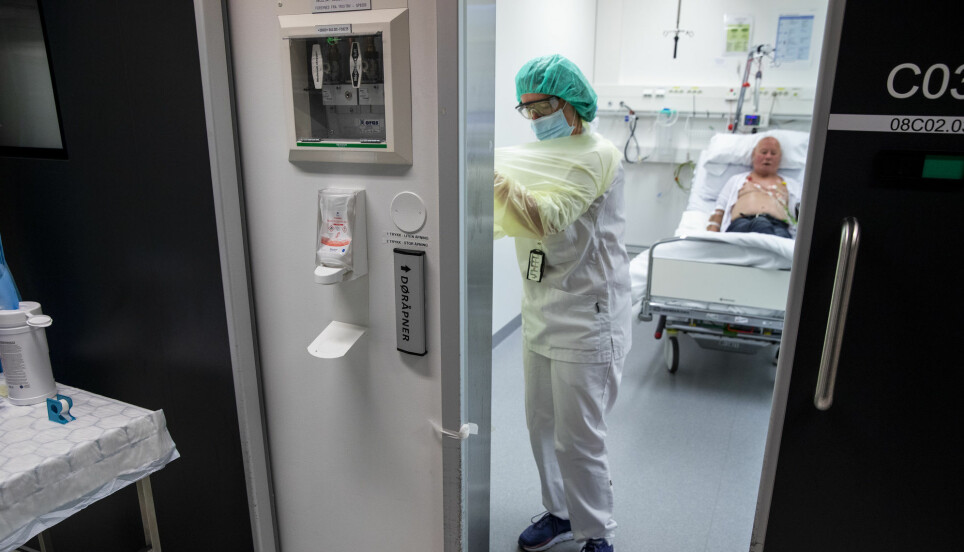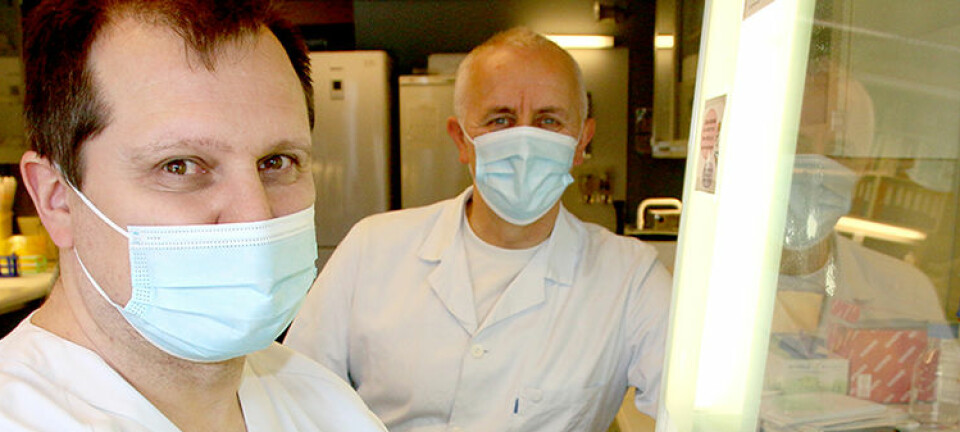
Norwegian drug may increase ventilator free survival in hospitalized Covid-19 patients
Trial shows that a drug called bemcentinib has the potential to increase the rate of ventilator free survival in more than 50 per cent of hospitalised COVID-19 patients, according to company press release.
Bemcentinib was originally developed to treat cancer but has been part of clinical testing to treat Covid-19 since the onset of the pandemic in the spring of last year.
The drug is developed by the company BerGenBio which is headquartered in Bergen, Norway.
Bemcentinib is a so-called AXL inhibitor, a protein which plays an important role when our immune system fails. Research has shown that AXL can lead to increased infection and increased survival for the virus in host cells. This means that a drug that inhibits AXL may have an effect for people infected by the coronavirus.
The drug is taken as a daily pill.
See also: Norwegian-British cancer medicine to be tested on British COVID-19 patients
Of potential great value
The results the company has now presented in a press release are based on data from clinical trials conducted from October 2020 to the end of March 2021. A total of 115 patients from South Africa and India were enrolled.
Ventilator free survival means surviving to day 29 without admission to ICU and need for ventilator assisted breathing.
The drug was found to increase the rate of ventilator free survival in more than 50 per cent of hospitalized Covid-19 patients.
"The potential of bemcentinib to increase the rate of ventilator free survival in more than 50% of hospitalised COVID-19 patients is very encouraging. This represents a meaningful outcome for both patients and healthcare systems and is of potential great value”, Chief Executive Officer of BerGenBio comments in the press release.
In a subgroup of patients with a more severe disease, ventilator free survival was found in 90 per cent of patients treated with bemcentinib, compared to 72 per cent who received standard care.
Overall, among patients treated with bemcentinib 96,5 per cent survived until day 29, compared to 91 per cent of those who only received standard treatment.
“The totality of data clearly informs a benefit from bemcentinib in treating a substantial subset of hospitalized COVID-19 patients”, the company conludes.
Great global need for effective treatment
“The greatest challenge faced by hospitals worldwide is an unmanageable demand for ICU capacity and ventilator support for COVID-19 patients”, Stener Kvinnsland says in the press release. Kvinnsland is professor emeritus and Direcor of BerGenBio.
“For the foreseeable future, in spite of recent progress with vaccinations, there remains a substantial global need for effective treatments for COVID-19 patients that offers survival benefit and relief for intensive care demand on hospitals”, he said.
Professor Tom Wilkinson is Chief Investigator on the British ACCORD programme – a national effort to identify and develop drugs to treat Covid-19. He highlights that the drug should be able to hold stand also against new strains of the virus.
“The novel mechanism of action of bemcentinib is independent of the SARS-CoV-2 spike protein and thus would be expected to retain its effect with the emergence of new, potentially vaccine-resistant, strains of the virus”, Wilkinson says in the press release.

































